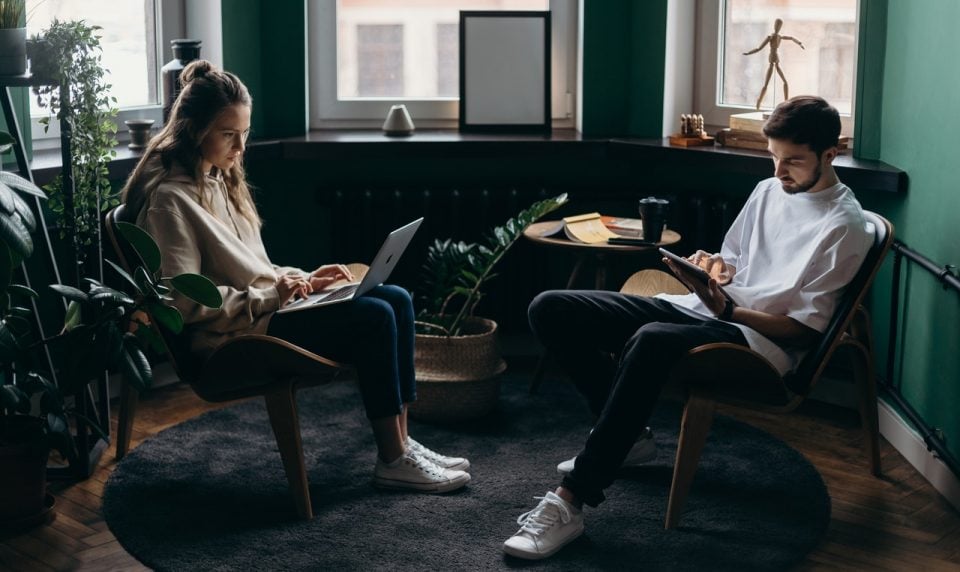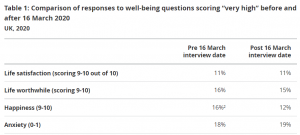Digitalisation and the student experience during COVID-19
After over a year of remote learning due to COVID-19 , let’s see what Emily, our Marketing intern, has to say on the matter…

As of mid-March 2020, governments all over the world imposed quarantines and social distancing guidelines in response to the spread of COVID-19.
Universities had to significantly alter the way in which they operate and change their standard methods of teaching, rapidly switching to remote (online) learning. But what impact did this have on student experience?
I am a student at the University of Sussex and I am about to start my third year studying BSc Marketing and Management with Psychology.
As the UK’s restrictions ease and universities prepare for normality, it’s interesting to look back on how online learning has affected the student experience over the last year and a half, for better and for worse.
Time management
For those who struggle to manage their time successfully, the switch to remote learning was probably much preferred over having in-person classes. You can’t deny that it is more convenient to attend a 9 am lecture from the comfort of your own home than to get ready and travel to the class – especially if you live off-campus!
This accessibility of time and place, being able to attend a lecture from wherever you are, seems to be improving attendance so I’d consider it a benefit.
Access to devices and internet issues
While easier to attend classes virtually, the online learning experience is not the same for everyone. The appearance of lectures/classes differs hugely between devices, so if someone only has a mobile, they will not be able to focus as well because the content will look much smaller than on a desktop, laptop, or tablet.
Internet connectivity issues are one of the most common problems that come with online learning. Unfortunately, to get a balanced study experience, a strong internet connection is a necessity. For many students, especially those living in private rented accommodation and paying for their own bills, fast Wi-Fi is, sadly, unlikely.
With my room having the worst Wi-Fi connection in my student flat, sometimes as low as 2mbps download speed, I can say I have experienced this frustrating issue many a time while studying from home.
Inability to focus on screens
Although it is tough on the eyes and tiring to spend so much time looking at a screen, I feel as though this cannot be used as an argument against online learning, as people choose to spend so much of their free time looking at a screen (phone, laptop, desktop, TV, games consoles etc).
For some, watching a lecture from their device may be preferred over watching it in a lecture theatre, especially in larger lecture theatres where it may be difficult to see the lecturer and screen if seated far away.
I would say I find it easier to focus on my pre-recorded lectures compared to an in-person lecture because I like being able to pause or change the speed of the video if needed.
Teacher Training
When teaching first switched to online in 2020, it was clear that many lecturers were not computer literate and did not know how to use applications like Zoom. Not only did lecturers have to learn new presentation skills for the camera, but they also had to learn how to record classes, and how to split people into groups (breakout rooms). This made classes rather tedious to watch.
However, with a bit of training and practice, classes flowed much more smoothly and were more enjoyable to watch when the next academic year started in September.
Trying to suit a variety of preferences
Attending university classes from home lacks social interactions as you do not get to see your peers face-to-face, making it difficult to form relationships.
However, for those who feel anxious during in-person classes and who prefer speaking online, they may feel an improvement in their interactions in class and may experience more interpersonal relationships with peers.
From my experience, more people participated and answered questions virtually compared to in-person. However, when put into smaller groups in a breakout room to work together, many people kept their cameras and microphones off, leaving us sitting in silence or doing the work individually. I do not think this would have been the case during an in-person class.
Regarding exams, I much prefer essays and take-away papers so I preferred exams being online. However, others may feel these types of assessments do not demonstrate their strengths as well as traditional exams and feel as though they have been disadvantaged by the change.
Taking individual differences into consideration, it is unlikely that there is one method of delivering classes that is preferred by everyone, therefore it is difficult to say whether one is better.
Loneliness
The absence of face-to-face interactions with other people on your course can lead to feelings of isolation and disconnection, especially when put into a group and no one participates.
In the Student Academic Experience Survey (SAES), students surveyed after 16 March 2020 reported significantly lower levels of happiness than those surveyed before that date. Two surveys run in November 2020 found that a majority of students reported that their mental health worsened.

For students in their first year, starting university is daunting enough as it is, let alone while learning remotely and being in multiple lockdowns. If living in university accommodation, it is likely many students felt this way, especially those who were not close with their housemates, as they did not get to experience university before the switch to online happened and therefore may not have an established group of friends outside of their flat.
Luckily, most universities offer support for students including free and confidential in-house counselling services which students can use if they are struggling.
Having spent the end of my first year off-campus, I was looking forward to getting to know more people on my course during my second year, but sadly the whole year ended up being remote. However, I am so grateful that I got along well with my housemates in my first year and that I now live with three of them.
My opinion on online learning
As a response to COVID-19, I think that most universities did a great job switching to remote learning as quickly as they did considering they were under-prepared. Generally, I do not feel academically disadvantaged in any way from not having my classes on campus.
However, going into my final year in September, and having only been on campus for a total of about 4 months, I do feel deprived in terms of getting the ‘uni experience’. This is not necessarily a fault of remote online learning, but just one of the many things impacted by COVID-19.
Here’s to a more normal academic year in September (hopefully)!


